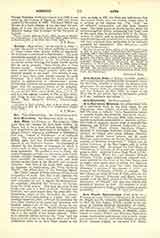

Acrostic (akros stichos, “at the end of a verse”), a poem the initial or final letters (syllables or words) of whose verses form certain words or sentences. Its invention is attributed to Epicharmus. The most remarkable example of such a poem is attributed by Lactantius and Eusebius to the Erythraean sibyl, the initial letters forming the words “Iesous Christos theou uios soter (stanros) “Jesus Christ, Son of God, Savior (cross)”. Omitting the doubtful parenthesis, these words form a minor acrostic: ‚ÄòIchthus, fish, the mystical symbol of our Lord. The acrostic is supposed to have been quite popular among the early Christians. In a wider sense the name acrostic is applied to alphabetical or “abecedarian” poems. In this kind of poetry the successive verses or stanzas begin with the successive letters of the alphabet. We see this exemplified in Pss. cxi, cxii, cxix (Vulg. cx, cxi, cxviii); Prov., xxxi, 10-31; Lam., i, ii, iii, iv; and in a less regular manner, in Pss. x, xxv, xxxv, cxlv (Vulg. ix, xxiv, xxxiv, xxxvi, cxliv); Ecclus., Ii, 18-38. (See Hebrew Poetry of the Old Testament. Parallelism. Psalms.)
A. J. MAAS

